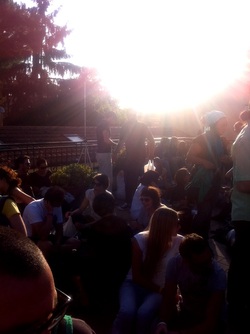 In the current political and economic climate, much has been said of the erosion of the quality of life in Italy. It's probably safe to say that in this respect, Italy is not alone in the EU, as people generally lament the direction Europe is heading in, particularly with substantial obstacles in the way of currency, migration, employment and perceived distances between political representation and daily realities. That said, many of Europe's metropoli continue to forge ahead, even in the face of severe social funding cuts. Rome is a seasonal city, where climate and seasons play a large role in defining the social calendar. But although it can be expensive for visitors, its a city that by necessity is marked by thriftiness. Though the official population of Rome is listed as four million, it is widely believed that the real number is somewhere closer to six million. The disparancy is attributed to a huge transient population, mostly believed to be made up of people without official papers, permissions and residency, who although invisible, often bear the brunt of the frustrations of legalresidents. When you consider the amount of people who exist but don't exist, the picture of the economic realities of the city come sharply into focus. Italy, has the fourth largest economy in the EU, and yet its salaries are amongst the lowest in the OECD. The Economist recently reported that its GDP growth in the last decade was lower than all other countries bar Zimbabwe and Haiti. As in most western economies, there is a deep gulf between the haves and have nots, and those who don't have money contribute to the two tiered pereception of Italians; those who are highly visible, living the lavish dolce vita; and those who continue to personify the stereotype of a tight, cunning people who are out to save a euro at any cost. Being without official papers and permissions usually relegates you into the second category. But its a category filled with good company and from this perspective, a long held summer tradition was born. Estate Romana, now a broad term referring to a huge array of events that take place in the city throughout the summer months, was originally envisaged as a means to provide locals with entertainment and the possibility of recreation when their finances wouldn't allow them to head to the seaside or mountains as those who have the means do en masse every July-August. Museums opened their doors free of charge, transport was free and temporary outdoor cinemas sprung up throughout the many districts of Rome to occupy its citizens on the warm, balmy summer nights. This program eventually evolved into a city wide institution, augmented by summer concerts (that now attract headline acts) and other cultural events, that take place nightly throughout the city. The idea of Summertime Rome as being shuttered and closed works in favor of the Summer program, as the idea of deserted, traffic less streets adds additional appeal to residents who take great pleasure in enjoying the events in all manner of sites, ranging from local schoolyards through to the show stopping Roman landmarks that dot the city (this year sites that are hosting events include the Roman Forum, the Baths of Caracalla and Villa Ada). For a city which often seems to crumble under the lack of its infrastructure, this is a thoughtful and well executed program which is played out in all of its suburbs. In many respects, the Estate Romana offers a viable alternative that some residents actively look forward to in the same way others look forward to seaside vacations. In the spirit of the Roman Summer, I tagged along with a group of friends on Sunday night to a free event in one of the city's many burbs. Near Porta Furba, practically under one of Rome's sensational aqueducts, we, along with almost 200 other young Romans watched two DJs unfold their sets of ambient electronica, all played out on someone's rooftop. The host didn't ask for any money, just that we quietly and respectfully watched the performances, brought our own aperitifs and snacks, and that we cleaned up after ourselves at the end of the night. Both our host and the DJ's offered themselves up free of charge, out of passion for what they do, and what they believe in, and although the DJ set won't be found on any of the Estate Romana programs, it's an example of how a metropolis can very easily placate and satiate its inhabitants without a huge amount of effort, expense and fanfare. Happy summer!
0 Comments
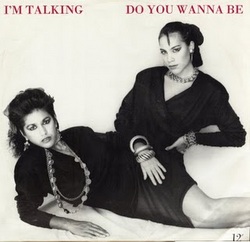 I'm writing a novel at the moment. It's taking forever to finish. The basics are that it's a story set against popular culture from the 80's through to the present. One of the problems I have, aside from the millions of things and people that are distracting me here in Rome, is that I often get lost in revisiting and researching the past trends and crazes that we communally have been swept up in during the last thirty years. Being born and raised in Oz, the prism through which I understood and accessed music was to a large extent dominated by what reached the far shores of Australia. And then, there was a second border control in that the media; particularly radio, ensured that only the most devout music lover could truly stay abreast of what was happening outside of Australia. Australia's musical past was dominated almost entirely by men. By rock music, by what we affectionately call Pub Rock. Right through to the nineties, the airwaves were controlled by rock acts, and acts from the old FM guard. Even at the height of acts like Culture Club and Wham! (whose visits to Australia sparked pandemonium), and later the sacred trinity of Michael Jackson, Prince and Madonna, it was near impossible to find them on radio dials. Instead you had the choice of iconic Aussie acts like Cold Chisel, Midnight Oil, maybe even a bit of AC/DC or hoary old rockers from the 70s to listen to or see live. But the interesting thing that happened in the mid eighties, was centred around the generational change that was being ushered in. Back then, Central Station, a Melbourne record store in Flinders St opened its doors, and it was one of the few places where you could find imported 7" and 12" records. It's arrival marked the first real alternative movement; the electronic one. Hard to imagine today, but back then, not only was dance music limited to a couple of locations in the CBDs of Australia's bigger cities; particularly in Melbourne, and Sydney. In Melbourne, King St was once the nexus of dance music and the club scene, alongside a handful of locales in Prahran. With the imports and newly emerging DJ culture growing, the first of what would go on to become a slew of Electronic pop-funk groups arrived on the scene. The kids loved them- bands like Wa Wa Nee, Pseudo Echo and Eurogliders quickly amassed strong followings, even when traditional live audiences often greeted them with the odd beer bottle and 'Poofta' insults. Most of these bands never got their dues on radio, but they were part of that new breed of artists that knew that by harnessing visual imagery; distinct looks, music videos and progressive cover art they probably stood a good chance of an appearance on Countdown which would basically offer them a bypass straight to the top of the charts. These groups, often introduced phenomenal songwriting talents, or talented vocalists who would go on to carve out significant and versatile careers. Melbourne based I'm Talking, introduced Kate Ceberano, a precocious teenager, a buxom and then exotic beauty who had the voice to match. They had a handful of hits over a three or four year period before they imploded, but somehow, despite, or perhaps as a result of a number of counter intuitive genre swings (jazz, pop, house and funk) she managed to carve out some kind of longeivity for herself. And in doing so, became one of the few acts from that early electronic revolution to mostly remain afloat long after. |
Dave
|
|
|
Dave Di Vito is a writer, teacher and former curator.He's also the author of the Vinyl Tiger series and Replace The Sky.
For information about upcoming writing projects subscribe to the mailing list. Dave hates SPAM so he won't trouble you with any of his own. He promises. |

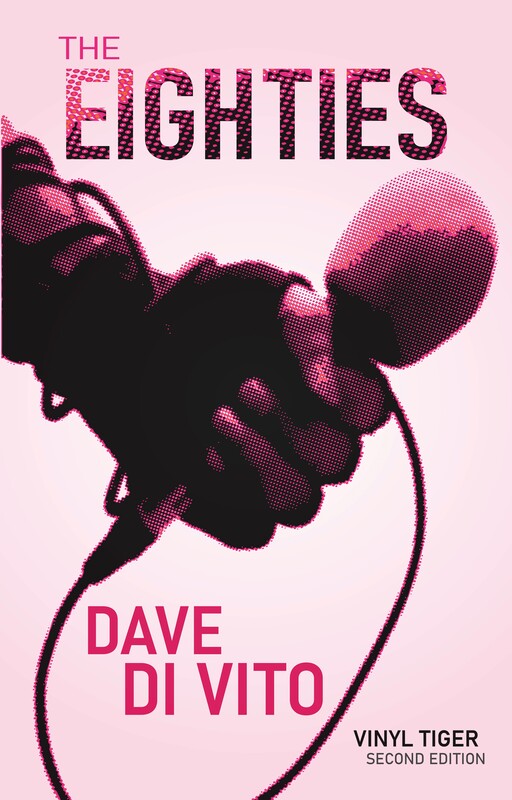
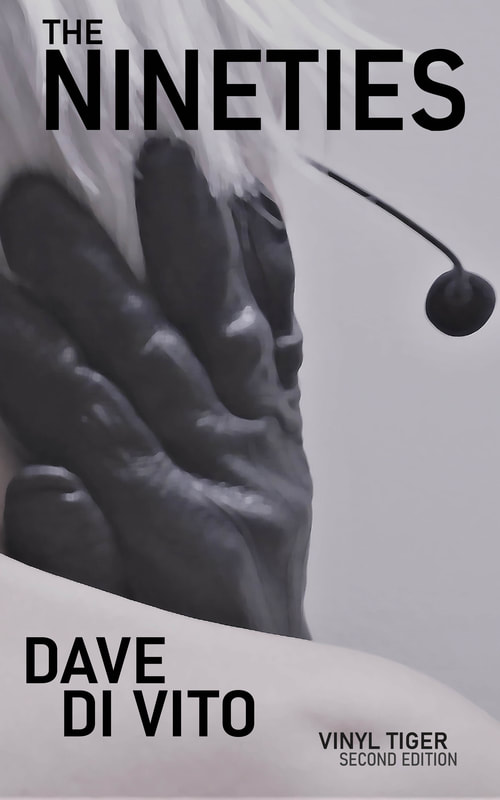
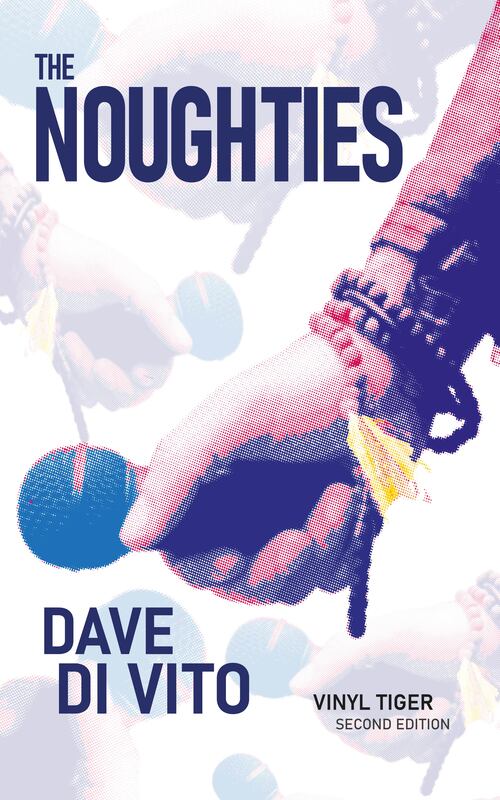
 RSS Feed
RSS Feed